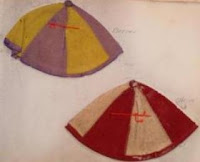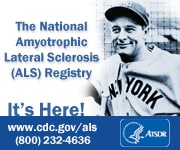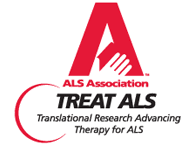That makes a revolving door of incoming and outgoing patients and advocates.
 Freshmen -- Patients and families get the diagnosis, often after having chased many wrong diagnoses. They google and ask questions. They want to fight this disease. The freshman advocates want to act rather than react, and they want to make a difference. This is a time to learn and discern.
Freshmen -- Patients and families get the diagnosis, often after having chased many wrong diagnoses. They google and ask questions. They want to fight this disease. The freshman advocates want to act rather than react, and they want to make a difference. This is a time to learn and discern.- Sophomores -- By the end of a year, families realize that the only treatments the least bit "promising" (we always use air quotes when using the word promising in relation to ALS) are experimental. It can be difficult to qualify for clinical trials if one's life expectancy is short. There are tempting and expensive offshore possibilities to explore. Anger and outrage set in. The sophomores make wonderful advocates because they are full of fire about the travesty that there are no effective treatments.
- Juniors -- If the patient has lasted this long, life becomes steadily more difficult. Speech may be gone. Technology comes to the rescue. This is the year of physics training. Patients and caregivers learn more about gravity than they ever wanted to know. Fluid dynamics are challenging, too. The outrage is still there, but the everyday dealings with the disease make letter writing and travel on behalf of the cause difficult if not impossible.
- Seniors -- By the end stages of ALS, families have learned to pick their battles. Energy is a precious commodity, and trips and messages to legislators aren't always possible. The end of the ALS journey is a complicated puzzle of hard work, acceptance, and grief. Morrie Schwartz explains it better than I.

Many ALS advocacy efforts are geared to this transient patient population. There are beginner informational sessions and opportunities. There are opportunities to advocate for those dealing with ALS who have the time, energy, and means to do so. The existing advocacy template seems to be a nice fit for the newly diagnosed who want to fight the status quo and make a difference for a couple of years.
What have we been doing with and for the patients who have slower cases of ALS and live much longer? What have we been doing with and for the caregivers and families who want to continue the fight until the disease is conquered? Some of us refuse to move on. Does the annual advocacy conference content work for people who have been returning relentlessly for six or seven or eight years? Does the process lead to constructive roles for those who have been fighting a frustrating battle for ten years?
It should not be a "four years and out" proposition. An advocate who has been tilting at windmills for ten years has much to offer but won't sit still for the same "promising" talk that he or she has heard year after year after year.
It would seem to be a good goal for 2010 to increase both the numbers and the depth of advocates in 2010 by looking beyond the four-year program.










1 comment:
Darn, I am not sure where I fit into the levels of advocacy. Senior doesn't fit because I am not yet end stage, so by elimination I suppose Junior is my class. However, reading on, as one five years into the lemminglike parade of ALS, I have heard about as much "promising" promises as I can stand. Actually I can no longer stand.
I have attended two of the National Advocacy Day events in Washington. The first one I was a Freshman and meeting others in my situation I found to be positive. I found the research sessions encouraging or
perhaps "promising". And traipsing around Capitol Hill visiting legislators made me feel like I was really engaged in a battle over which I had very little other control.
The candle light ceremony at the Lincoln Memorial was beautiful and tearful.
Having worked in Washington for ten years I was anxious to what the press had to say about this conference. I flipped on the TV and surfed the channels to see how much publicity this event that was almost life sustaining for the ALS patients in attendance was being aired. I found nothing.
I hurriedly sought out the Washington Post to see what was written about this personally hugely important conference. There was nothing.
I repeated my attendance two years later and, alas, heard the same "promises" about research. Found the the National ALS Registry would not likely be operation in my life time. The candle light ceremony had collapsed to a building patio across the street from the conference hotel.
I still found the visitation to see my legislators a boost, although in neither trip did we actually meet any legislators, but we did meet with staff, sometimes in hallways rather than in offices.
But I had enough time of living with ALS to conclude that the annual conference as configured was not worth the time and considerable expense.
I am approaching the Senior level and am finding driving a 1,000 mile trip and the sometimes funky experience of toiletting, so it is unlikely my wife and I will make the trip to Washington again.
When my Congressman is home visiting his district I will meet with him, and not a staffer. My Congressman is a great guy and is a staunch supporter of the ALS community.
Now it is clear why I am Grumpy.
Post a Comment